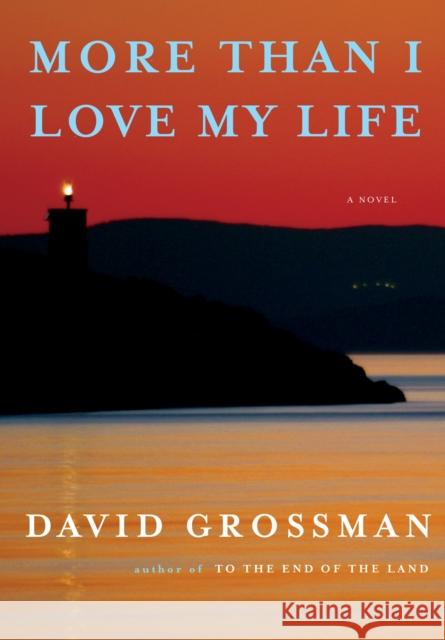More Than I Love My Life: A novel » książka



(netto: 68,79 VAT: 5%)
Najniższa cena z 30 dni: 71,74 zł
ok. 8-10 dni roboczych
Dostawa przed świętami

Darmowa dostawa!
INTERNATIONAL BOOKER PRIZE NOMINEE
Cast[s] a spell that lingers . . . Grossman s evocative gifts are in full force [and] his understanding of the opaque ways of love sometimes subterranean, often unexpected or arbitrary is unmatched . . . [His] novels have a cumulative power that subsumes mere plausibility. He succeeds in transcending the permutations of his plots and the localness of his settings indeed, to make deliberate use of the Israeli template to create themes of loss, the redemptive power of love, the immutable scars of history and the consoling effect of humor that resonate well beyond the world of the kibbutz or the background of the Holocaust . . . To read [Grossman] is to understand that there is a world beyond the political, even in these re-tribalized times, one in which there is room for recognition, however incomplete and often painful, of who we are in our own eyes and in one another s. Daphne Merkin, The New York Times Book Reivew
A somber and affecting tale without recourse to undue melodrama or psychobabble. This delicately crafted novel, crisply translated from the Hebrew by Jessica Cohen, is a fitting tribute to his friend. Houman Barekat, The Sunday Times (London)
Another extraordinary novel from Grossman, a book as beautiful and sad as anything you ll read this year . . . A book of secrets wrapped within secrets . . . It is a love story, a story about a family and their myriad individual tragedies. But it is also about the way that the personal can never be wholly separated from the political, about the lingering wounds of history, about how violence seeps into all the dark corners of a life. It is, in the end, about Israel. . . . Immaculately translated by Jessica Cohen. Alex Preston, The Observer
Concisely devastating . . . A powerful retelling of a Jewish woman s extraordinary life . . . A story so emotionally, ideologically and morally complex that it takes all of Grossman s considerable skills to render . . . He has demonstrated again that the novel elastic, expansive, amenable to painful fragmentation can provide a space for the most harrowing and resistant material. Alex Clark, The Guardian
Tender and disquieting . . . Grossman shines a light on the victims of the violent split between Tito and Stalin, as well as on the stories people tell themselves to explain, survive, and forgive. And in Vera, who is nimble and sharp at 90, endlessly self-mythologizing, and possessed of a broken Hebrew that Cohen renders into idiosyncratic broken English, the author has created an unforgettable character. This adds another remarkable achievement to Grossman s long list. Publishers Weekly (starred review)
The undeniable moral strength of his voice is informed by a sharp awareness of the complex treacheries of the last century; it also accepts its responsibility to battle against attempts to forget or minimize those traumas. Susan Miron, The Arts Fuse
Powerful . . . Grossman performs a deft exploration of how trauma impacts succeeding generations. Kristine Huntley, Booklist
Praise from abroad for More Than I Love My Life
To turn a true story into a true story universal and precise, haunted by destiny and graced with a complete humanity requires the wisdom of a narrator like Grossman. Alessandro Zaccuri, Avvenire (Italy)
A superb depiction of three generations of women in which the author fleshes out an absence. Florence Noiville, Le Monde (France)
Captivating . . . David Grossman is a master of the literature of redemption. Volker Weidermann, Der Spiegel (Germany)
To Grossman, it is something beyond politics and psychology that is important, something that is difficult to put into words, but which he nevertheless embodies: that life is, after all, better than death. Ingrid Elam, DN (Sweden)
DAVID GROSSMAN was born in Jerusalem. He is the author of numerous works of fiction, nonfiction, and children's literature. His writing has appeared in The New Yorker and has been translated into more than forty languages. He is the recipient of many prizes, including the French Chevalier de l'Ordre des Arts et des Lettres, the Buxtehuder Bulle in Germany, Rome's Premio per la Pace e l'Azione Umanitaria, the Premio Ischia International Journalism Award, Israel's EMET Prize, the Man Booker International Prize, and the Albatross Prize given by the Günter Grass Foundation. He lives in Jerusalem.
JESSICA COHEN translates contemporary Israeli prose, poetry, and other creative work. She shared the 2017 Man Booker International Prize with David Grossman, for her translation of A Horse Walks into a Bar, and has translated works by major Israeli writers, including Amos Oz, Etgar Keret, Ronit Matalon and Nir Baram.
1997-2024 DolnySlask.com Agencja Internetowa
KrainaKsiazek.PL - Księgarnia Internetowa









